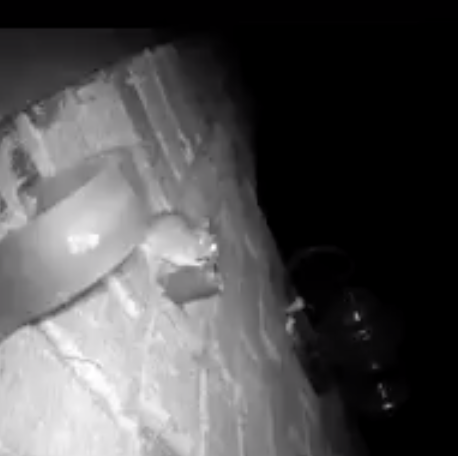.jpg)
Catch of the Week: Climbing Mice
October 8, 2020
As the weather begins to drop in temperature, mice infestations are more prevalent in homes and businesses. Our team recently received a call from a local homeowner about a mouse entering through the brick walls of her property, and was hoping we could help. Luckily the home was equipped with a security camera, and after watching the footage, the woman found that the mouse had gotten inside through a pipe that was protruding through the brick about 12 feet off of the ground! That’s right, mice have the ability to climb, and won’t always use holes and cracks near the ground. They can scale vertical surfaces and enter from any opening like the roof and overhangs.

Preferred Pest Control recommends that homeowners seal entry points with steel wool as it will prevent mice from getting inside. The woman we visited about this particular mouse invasion ended up having live mice on her kitchen counter when we got there, an extreme health hazard. We want to help homeowners avoid mice infestations and the potential dangers that can follow by revealing everything you need to know to identify a mouse, get rid of a current infestation and prevent future ones.
Causes of Mice Infestations
Homes create the perfect living conditions for mice who are constantly on the hunt for food, warmth and shelter. As the weather gets colder, their need for these things becomes more salient and keeping them out can be a challenge. These pests are persistent and the opportunities for them to get inside a home vary greatly.
Where Do Mice Like to Nest?
Mice can live in most conditions. From forests and grasslands to homes, they can be found in almost all countries around the world. Mice are extremely hardy creatures and typically eat between 15 and 20 times a day, so choosing a shelter that provides a sufficient food and water source is critical. Common nesting areas in a home include any dark areas such as cabinets, closets, storage containers and under furniture. They can use miscellaneous items to create their nests in your home, and are most often found in small nooks and crannies, or any place close to a food source.
They have numerous predators like cats, birds, wild dogs and foxes. To keep safe from their predators in the wild, mice will burrow deep in the ground. Mice are nocturnal which is why homeowners often hear them around the home at night. While domestic mice can make great pets for older children, wild mice are naturally very timid around humans and other animals.
Ways Mice Can Enter Your Home
Unsealed cracks and crevices are easily the most common entry points for mice to get inside your home, typically in your foundation, attic, or outer walls like the case of this local homeowner. Finding and sealing these potential entry points can prove to be a challenge as mice can fit through holes as small as a dime. It’s important to look for these cracks in places that could be worsened by water damage or other pests.
Mice should not be underestimated as they are much more athletic than you might think. They can climb, swim and jump, all three of which create endless opportunities for them to get where they want to go, whether it’s to a food source, water source or prime nesting area. They can also climb straight up for long distances on any surface that provides some sort of grip. On the home’s exterior, mice and rodents can climb stucco, siding, wood finishing, shingles and more. Our Preferred Pest Control experts have treated a home in the past where the mouse scaled a two-story home and chewed through the soffit in order to seek shelter in the home! We recommend looking for entry opportunities in areas where wires, pipes and other objects protrude from the exterior walls and create direct access inside.
How You Can Keep Mice Out of Your Home
Mice can wreak serious havoc on your home, leaving disease-ridden droppings on floors, countertops and even food! They can also gnaw through wiring, potentially causing house fires. To eliminate and keep mice out of your home, there are a few things you can do:
- Locate their entry point(s)
- Set mouse traps
- Use caulk or steel wool to seal up cracks and crevices around your home
- Keep your yard clean by clearing away shrubbery, branches and other debris
- Store food properly using air-tight containers
- Always check the garage for mice, it’s not uncommon to find them in the hood of your car
The most effective pest treatment and prevention plan is always to contact professional exterminators. Oftentimes, DIY solutions can be a waste of time and money, and when it comes to mice, acting quickly and effectively is critical to avoiding any damage to your home or sickness from the disease and bacteria these critters can leave behind.
How Preferred Pest Control Can Help
Learn more about mice and their reproductive, feeding and nesting habits at our pest library, and keep them out of your home when you call our trained Des Moines pest exterminators. You can schedule an appointment with Preferred Pest Control online, or contact us today at (515) 415-5550.
Related Articles